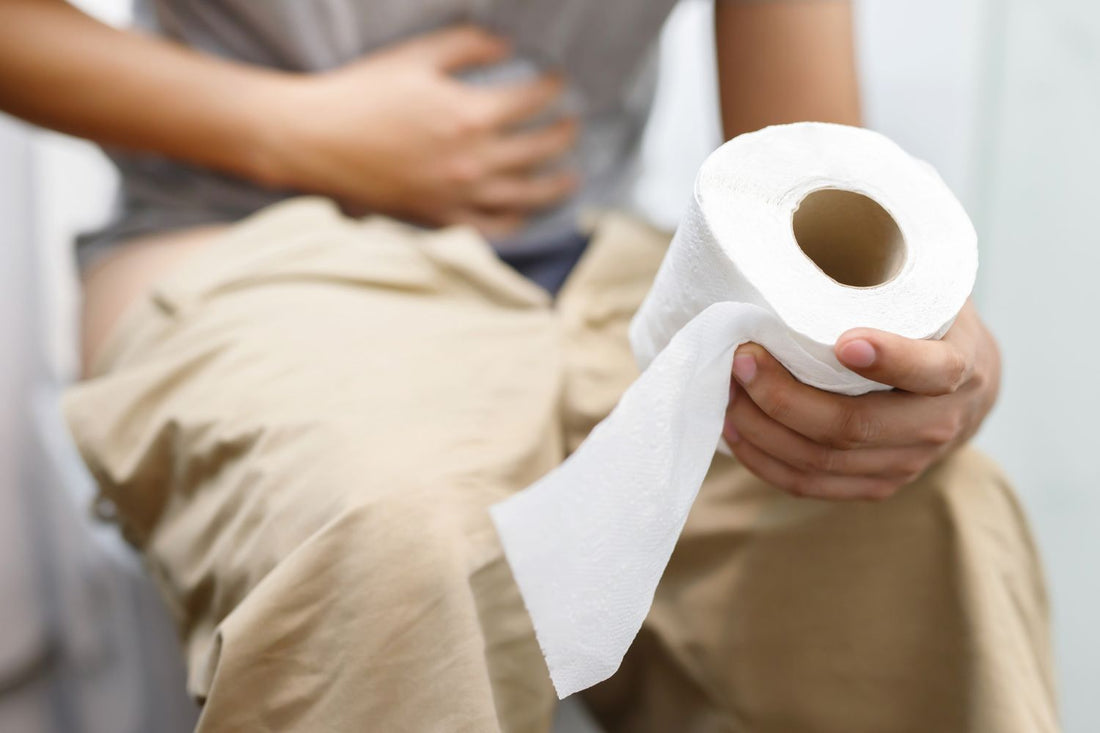There’s hardly anything more uncomfortable than the feeling of being constipated. It really is disabling. You don’t want to eat anything because you feel so clogged up. You’ll do anything to get relief.
If you read about constipation, the main advice is to consume more fiber and drink more liquids. Hot beverages, like a cup of Teeccino in the morning, can be very helpful to get the colon’s peristalsis moving. Soluble fiber, which you can get from TeeChia Super Seed Cereal, relieves constipation in most people – except for those with constipation caused by factors outside of dietary ones.
If you have constipation from lifestyle choices, read our blog “What Makes You Go? 6 Tips to Cure Constipation Naturally”, which addresses various ways to change your diet to keep yourself regular. If your constipation doesn’t yield to those kinds of dietary suggestions, this blog explores how to cope with chronic constipation.

Constipation from non-dietary reasons
Doctors don’t always mention it, but constipation is a side effect of a number of prescription drugs. They simply dry out the colon and no matter how much water you drink, you still have very hard, dry stools that are difficult to pass.
Exercise helps mitigate constipation and all advice about correcting constipation recommends it, but some people can’t exercise due to their age or physical limitations.
Constipation is a symptom of many health conditions, such as inflammatory conditions (e.g., irritable bowel syndrome), diabetes, auto-immune diseases and cancer. Even normal conditions like pregnancy can temporarily cause constipation that is hard to overcome.
Natural ways to cope with chronic constipation
If you have constipation that doesn’t respond to increased soluble fiber such as mucilaginous seeds like chia and flax, and you’ve tried the bulk forming laxatives like psyllium seeds to no avail, you need to move on to the next group of laxatives that help restore bowel function. Here are recommendations based on my experience with a loved one suffering from stubborn constipation caused by a prescription drug combined with a health condition:
Magnesium supplements: Several forms of magnesium are very helpful in rehydrating the colon and softening the stool. You can mix magnesium powder such as magnesium citrate and carbonate into water or juice. Magnesium gluconate is also available as a pill and works well. If you take too much magnesium, it can cause diarrhea but once you find the right dose for you, magnesium is effective, healthy for you and pleasant to take.
Laxative teas: Laxative teas are based on a plant called senna. Both the pods and the leaves can be used but the pods are considered the most effective. Senna is grown in India and contains sennosides which are an irritant to the bowel. Senna can be very effective in getting peristalsis moving but it can also cause cramps and a lot of discomfort. Start with a half cup of tea at night and see if it is productive by the morning. If not, drink the rest of the cup. The tea should be effective within 8 hours of consuming it so give it some time to work before you ingest more!
Other stimulant laxatives are marketed as pills such as Ex-Lax® and SwissKriss®. The problem with these laxatives is that the colon can become dependent on them, and their effectiveness can decrease in time. I recommend laxative teas because they are more gentle.
Over-the-counter remedies: Osmotic remedies help draw water into the stool. The best seller is Miralax® which is pure polypropylene glycol derived from petroleum. Not the healthiest option, but it usually works, bringing relief when other solutions have failed.
Colonics & enemas: A good colon cleanse called a colonic can help reset the colon and make you feel much better. A good colon therapist will also be able to help you address anything you may have overlooked in getting your colon to function better.
Enemas are available in bulb syringes that are easy to self-administer but won’t clean your colon like a colonic. Enema bags hold more water and can use pressure by hanging the bag above you to force the water further up your colon. Both types of enemas work well for getting hard stools out which are blocking the colon from being able to eliminate the rest of the stools.
.jpg?v=1690327262555)
Prebiotics for good colon health
No matter which methods you use to relieve and manage your constipation, prebiotics that nourish your probiotics should be part of a long-term strategy for restoring your colon health.
Teeccino’s natural inulin which extracts from chicory root during brewing, is nature’s ubiquitous prebiotic that is spread across many foods and found in the highest concentration in chicory. Dandelion root also is a great source of inulin. Jerusalem artichokes, regular artichokes, onions and garlic are also sources of inulin, but in amounts too small to make enough of an impact.
Prebiotic concentrates like the oligosaccharides in Teeccino Prebiotic SuperBoost® blends increase the effect of prebiotics in your gut. Giving your microbiome a prebiotic that increases the population of your beneficial lactobacillus and bifidus probiotics will benefit your digestion, your immunity, your mood and your colon health!



2 comments
This is very informative. I’m going to try some of your teas and other suggestions here.
I put chia seeds and flax seeds in my oatmeal and I get gas. Is that normal?